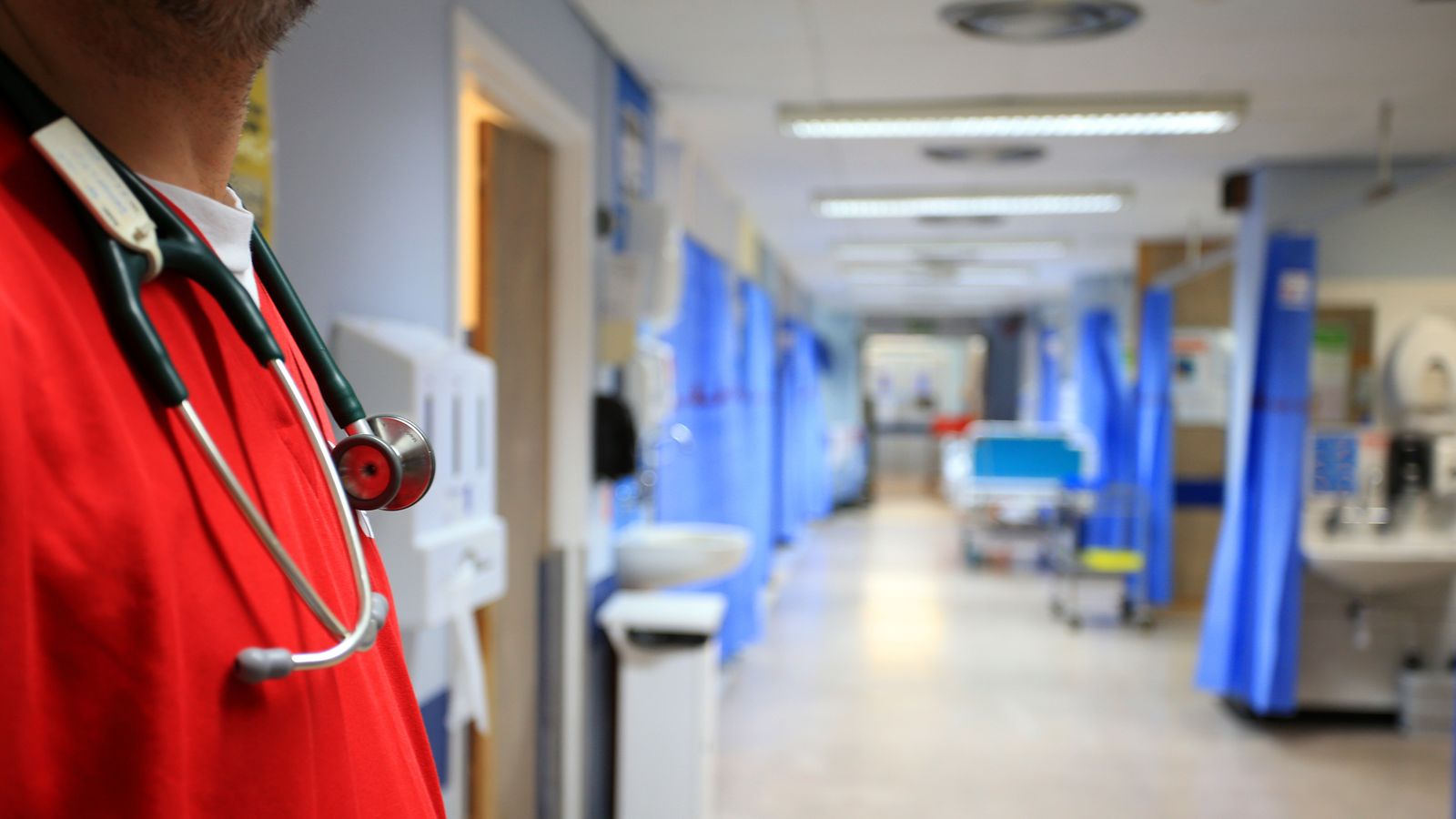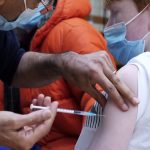Cancer care in the NHS is at a “watershed moment” and the crisis must be tackled with the same urgency as the search for a COVID vaccine, experts have warned.
In a report published in the Lancet Oncology journal, clinicians from Imperial College London, the Institute of Cancer Policy at King’s College, Radiotherapy UK, and Check4Cancer have said delays to treating cancer patients must be tackled now, adding: “The UK public and the NHS should not tolerate the normalisation of delayed cancer care”.
The team pointed to a “survival gap” compared with many other countries, adding: “Although all NHS backlogs are important, the cancer backlog is the most time-sensitive and the most deadly”
They said the NHS and frontline staff need the same urgency and leadership that was given to the COVID-19 Vaccine Taskforce.
Share your story about the NHS
Latest NHS figures show a decline in the number of people starting their first cancer treatment within two months.
They showed that only 60.3% of the 14,425 cancer patients urgently referred by their GP in October had waited less than two months by the time they started treatment.
This was the second-lowest percentage on record and below the 85% target.
The experts said that when it comes to curing cancer, a four-week delay in treatment “increases mortality by between 6% and 13% for solid cancers, with further increases if the delay is longer”.
“The complex cancer pathways were fragile and failing in the UK before their breakdown during the COVID-19 pandemic,” they added.
“The 2021 Joint All-Party Parliamentary Group Cancer Summit Report highlighted multiple causes for their failure, including a deteriorating workforce crisis, a lack of short-term and long-term planning to address the workforce shortage, insufficient diagnostic (radiology and pathology) and treatment capacity, and an outdated information technology infrastructure.”
‘Tragic day for the NHS’ as nurses walk out for first time ever – strike latest
The team argued that introducing more targets could distort priorities and “so many targets have been missed that targets become a less meaningful tool for change”.
A new NHS workforce plan should “lead to major improvements in cancer care” but “short-term action is needed to save lives now”.
The advised that to improve cancer survival “the UK needs to deliver cancer treatment within the recommended timeframe”.
To achieve this, the NHS must retain current staff and “give them the tools and support they need to do their jobs”.
Read more:
How the NHS will be impacted by strikes
NHS staff shortages led to 30,000 cancelled operations
The report adds that “currently some frontline staff are exhausted and too afraid to speak out, never mind feel part of the solution”.
It states: “Inefficient practices have emerged: secretarial support has been suspended so consultants are less productive than they should be, obsolete IT slowing everyday work, workflow tools not being purchased, and antiquated equipment, such as radiotherapy machines, so out of date they take twice as long as modern machines to treat patients less well than is possible”.
‘Radical new plan needed’
The team said there needs to be a major investment in radiotherapy, which is in danger of collapse, despite the fact that it is needed by at least 53% of UK patients with cancer. It is involved in 40% of cancer cures.
Founder of the #CatchUpWithCancer campaign Professor Pat Price, one of the authors, said: “This is a watershed moment for UK cancer services – the biggest cancer crisis ever – we can’t accept the normalisation of record-breaking cancer treatment waiting times”.
“Clinicians know it doesn’t need to be this way and that we don’t need new ground-breaking research to avert disaster.”
He added: “If ever there was a time for us to deliver much-needed investment into cancer treatment, it is now.”
An NHS spokesman said: “While fewer people came forward during the early months of the pandemic, over 780,000 people in England have started treatment for cancer since March 2020 – 94% within a month – and over 250,000 had radiotherapy as a subsequent treatment, while record numbers of people are getting checked thanks to our biggest ever national cancer awareness campaign and record numbers of GP appointments.
“The NHS is investing billions to expand diagnostic and treatment services to meet increased demand, as well as rolling out new initiatives including straight to test services, cancer symptom hotlines and mobile lung scanning trucks, which have already diagnosed over a thousand cancers earlier when they are easier to treat.”






















